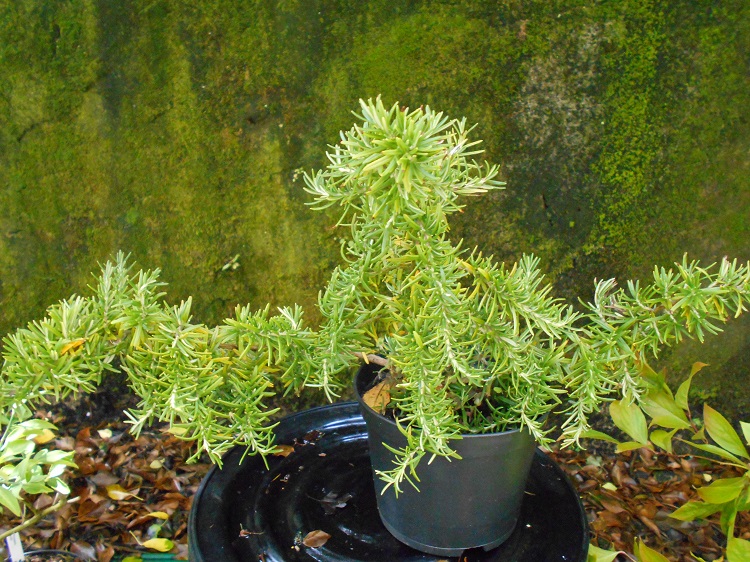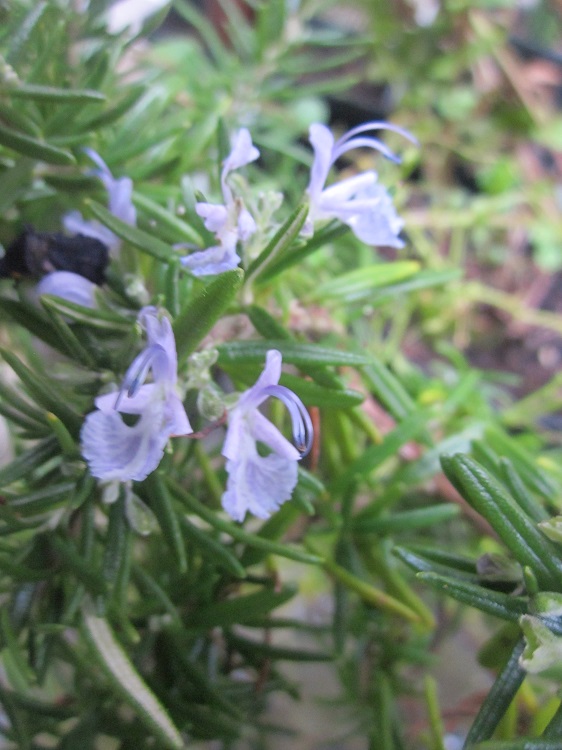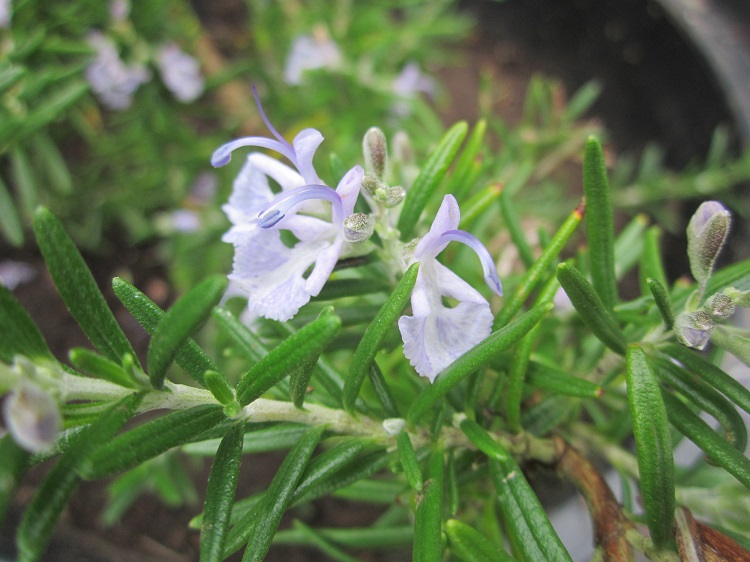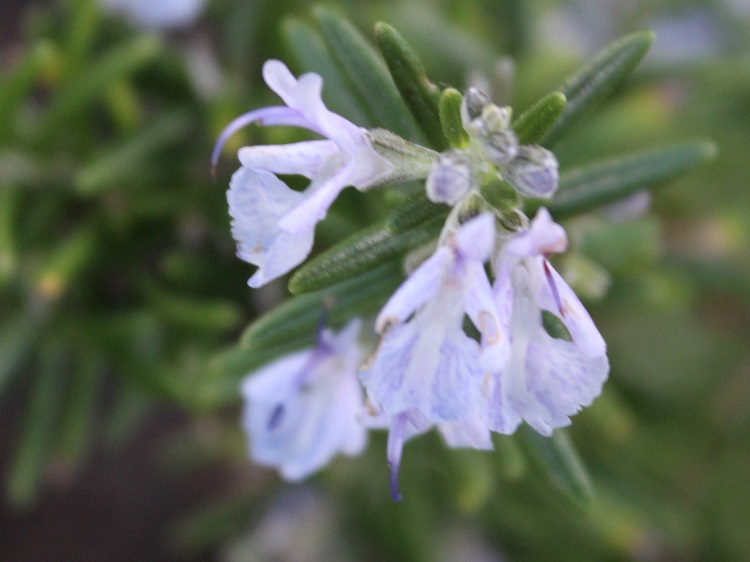 |
Don't ask me why I have a Rosemry, it makes no sense. It would like a sunny, open position. I have a dank, shaded garden.
Such sunny locations as I have are already filled to capacity, a Rosemary has no chance. The outcome was predictible,
I no longer have a Rosemary. I wish I had cooked with it instead of deluding myself that I would grow it. Trees and Shrubs online says: "Of trailing habit. Foliage fresh green, dense. Flowers light blue. Very tender, and usually grown at the edge of a dry wall, where it can cascade downwards. Although there may be more than one clone under this name, the plant described is probably the one put into commerce by Smith of Newry around 1900, which was said to have come from a garden near Nice. But there is also reference in the literature to an introduction of a prostrate form from Capri (Gard. Chron., Vol. 39 (1906), p. 381; Vol. 74 (1923), p. 24; Vol. 82 (1927), p. 402; Fl. and Sylv., Vol. 1 (1903), p. 200)." Writing in the Gardeners Chronicle in 1906, S.Arnott said: "Unlike the typical Rosemary, this variety is of prostrate habit and hangs down over the rocks, making a pretty picture with its pointed leaves and pleasing little purplish-lilac flowers. Most of those who have cultivated the variety find it necessary to propagate it regularly by means of cuttings, but it is probable that there are many gardens where it will not be necessary to do this in order to prevent the loss of the variety in the garden. I have no record of the origin of the prostrate form of the Rosemary, which can be grown readily with us in a sandy soil, but it was distributed from Mr Smith's Newry Nursery a year or two ago. S. Arnott, Sunnymead, Dumfries." |
|
| 5th July 2014 | ||


